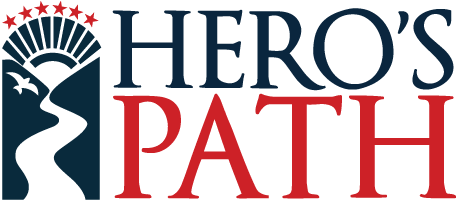For many veterans, the battle doesn’t end when they leave the battlefield. Transitioning back to civilian life comes with its own set of challenges, not least of which is the struggle some veterans face with addiction. The journey to sobriety for veterans is paved with unique obstacles, deeply intertwined with experiences of PTSD and trauma. Understanding these challenges is crucial, not only for the veterans themselves but also for their families and the professionals dedicated to supporting them through the Veterans Affairs (VA) system.
The Shadow of PTSD and Trauma
Post-Traumatic Stress Disorder (PTSD) plays a significant role in the lives of many veterans, stemming from experiences that are hard for many civilians to fully comprehend. The link between PTSD and addiction is well-documented, with substance use often starting as a coping mechanism to manage the symptoms of PTSD, such as anxiety, flashbacks, and insomnia. However, what begins as self-medication can quickly spiral into dependency and addiction, creating a co-occurring condition that requires specialized treatment approaches.
The Stigma of Seeking Help
Military culture is built on strength, resilience, and the ability to endure hardship. Unfortunately, these admirable qualities can sometimes make it difficult for veterans to acknowledge their struggles with substance use or to seek help. The stigma surrounding addiction, coupled with the fear of being perceived as weak, can deter veterans from accessing the support they need, delaying treatment and worsening the problem.
Reintegration into Civilian Life
Transitioning from military to civilian life is a difficult change involving a loss of identity, purpose, and camaraderie for many veterans. The military environment provides structure, clear roles, and a sense of belonging, all of which can be conspicuously absent in civilian life. This disorientation can contribute to feelings of isolation, depression, and anxiety, increasing the risk of substance use as veterans attempt to navigate this new terrain without adequate support.
The Role of Chronic Pain and Prescription Medication
Many veterans return home with physical injuries, some of which lead to chronic pain. The management of this pain often involves prescription medications, including opioids, which carry a high risk of addiction. The transition from legitimate medical use to dependency is a slippery slope, made more treacherous by the lack of comprehensive pain management and addiction prevention strategies tailored to the veteran population.
Our Hero’s Path Program
Recognizing these unique challenges, we have developed the Hero’s Path Program, specifically designed to support veterans on their journey to recovery. The Hero’s Path Program offers an understanding of the veteran experience, providing a bridge between military and civilian life that respects the service and sacrifice of its participants.
Tailored Treatment Approaches
The Hero’s Path Program integrates evidence-based treatment for addiction with specialized care for PTSD and other trauma-related issues. Understanding that one size does not fit all, especially in the context of the veteran experience, the program offers individualized treatment plans that address the root causes of addiction alongside the psychological and emotional wounds of military service.
Breaking Down the Stigma
A cornerstone of the Hero’s Path Program is its focus on breaking down the stigma associated with seeking help. By creating a community of veterans walking the same path, the program reinforces that reaching out for help is a sign of strength and a strategic move toward reclaiming control over one’s life.
Managing Chronic Pain Without Dependency
For veterans dealing with chronic pain, the Hero’s Path Program offers alternative pain management strategies that reduce the risk of addiction. This includes non-pharmacological approaches and education on the risks associated with prescription medications, providing veterans with the tools they need to manage pain in a healthy, sustainable way.
Finding Recovery Together
The journey to sobriety for veterans is fraught with challenges that demand a nuanced understanding and specialized approaches to treatment. The Hero’s Path Program stands out as a beacon of hope, offering tailored support that acknowledges the bravery and sacrifice of veterans. By addressing the intertwined issues of PTSD, trauma, and reintegration to civilian life and by providing a pathway through the battle of addiction, the program honors the service of veterans while empowering them toward a future of sobriety and wellness.
For veterans struggling with addiction, their families, and VA employees dedicated to their care, programs like Hero’s Path illuminate the way forward. It’s a reminder that while the battle against addiction may be hard-fought, it does not have to be faced alone. The courage to seek help is the first step on the path to recovery, a path that, with the right support, can lead to a life reclaimed from the grip of addiction.






